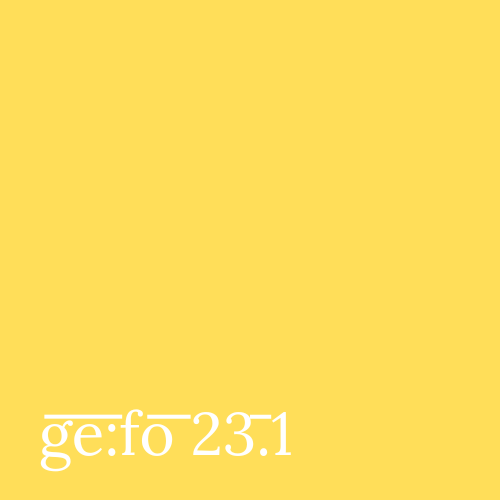Queering Postcolonial Worlds: An Introduction
DOI:
https://doi.org/10.18716/ojs/gefo/2024.3165Keywords:
Postcolonial Literature, Queerness, Postcoloniality, Coloniality, Postcolonial Studies, Queer Studies, gender, sexualityAbstract
In lieu of an abstract, here is the first paragraph of this introduction:
The ensemble of cultural, literary, and theoretical representations engaged with throughout this issue are based on presentations given at the Postgraduate Forum of the German Association of Anglophone and Postcolonial Studies (GAPS), which we—the guest editors of this issue—co-organized in October 2023 at the University of Bremen. The creative works examined here present the world “slantwise” in how they articulate queer, postcolonial relations and conditions in different ways (cf. also Buckley and Ilott 1). In their (re-)orientations toward institutionalized religion, temporality, space, legal frameworks, and colonial legacies, these cultural productions reflect, and facilitate reflection on, how we situate ourselves in our multifaceted worlds. In doing so, they begin to challenge how ostensibly postcolonial worlds intersect with queer subjectivities and the plurality of queer experiences. Indeed, Ahmed posits that “different orientations, different ways of directing one’s desires, means inhabiting different worlds” (86). Alongside and in dialogue with the contributors to this special issue, we ask: What worlds are opened up at the nexus of postcoloniality and queerness? How do the histories and legacies of colonialism inform genealogies of queer writing? In what ways do contemporary queer cultural productions “queer” established postcolonial frameworks? And where do we find queer orientations in postcolonial cultural productions?



